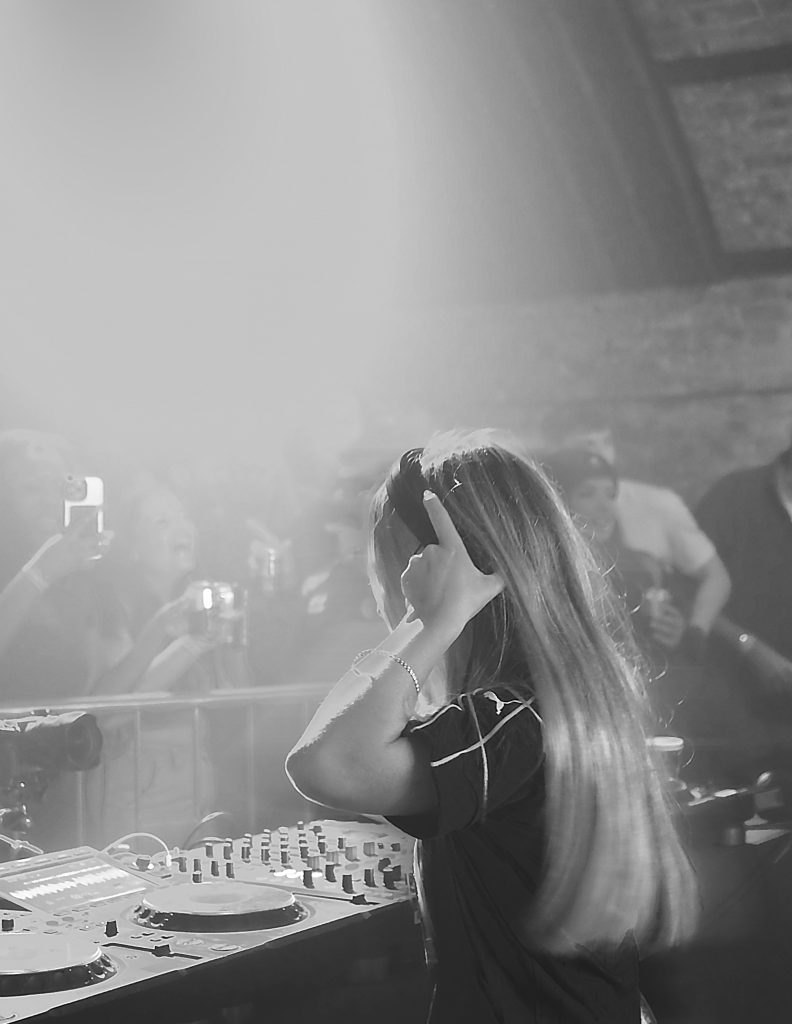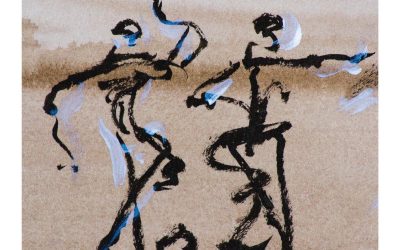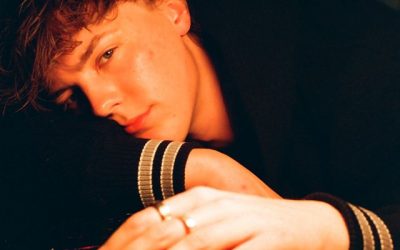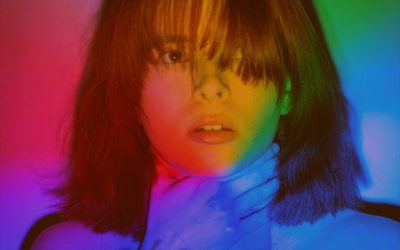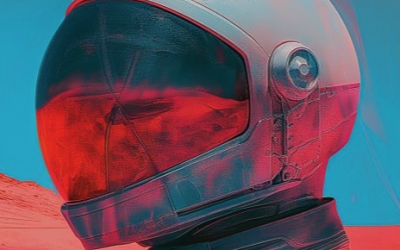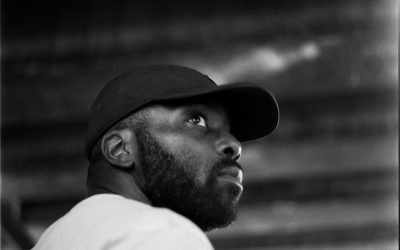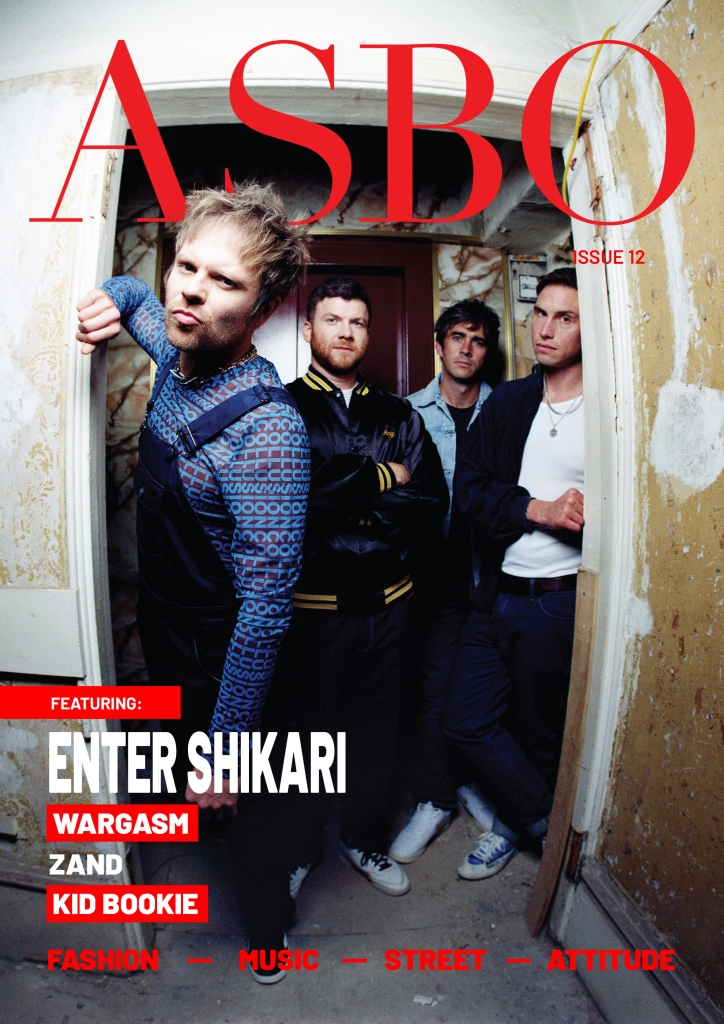Words by Theo Thompson
Photos by Orson Salha
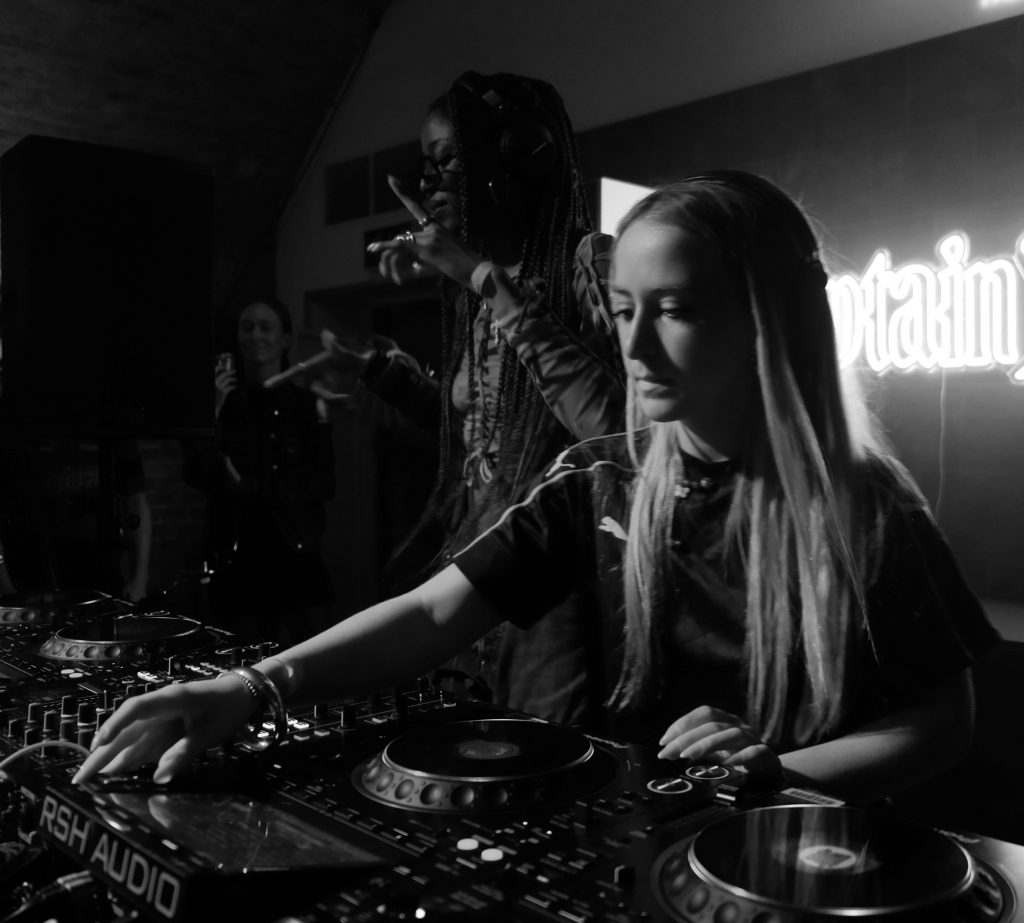
ESC is certainly a name known in the music scene, being a rising force in electronic music, blending her classical roots and production talent with a passion for creating a unique voice in the electronic music world. Her journey started from a young age, inspired by her dad’s composition classes and her immersion in classical music, including a stint in the National Youth Choir. “He sat me at the piano and I grew up with a lot of classical music,” she explains, “but I eventually began writing my own songs and discovered the world of electronic music.” This drive led her to experiment on Studio One, recording herself on guitar and later, exploring production to take control of her musical path through dark yet energetic sounds.
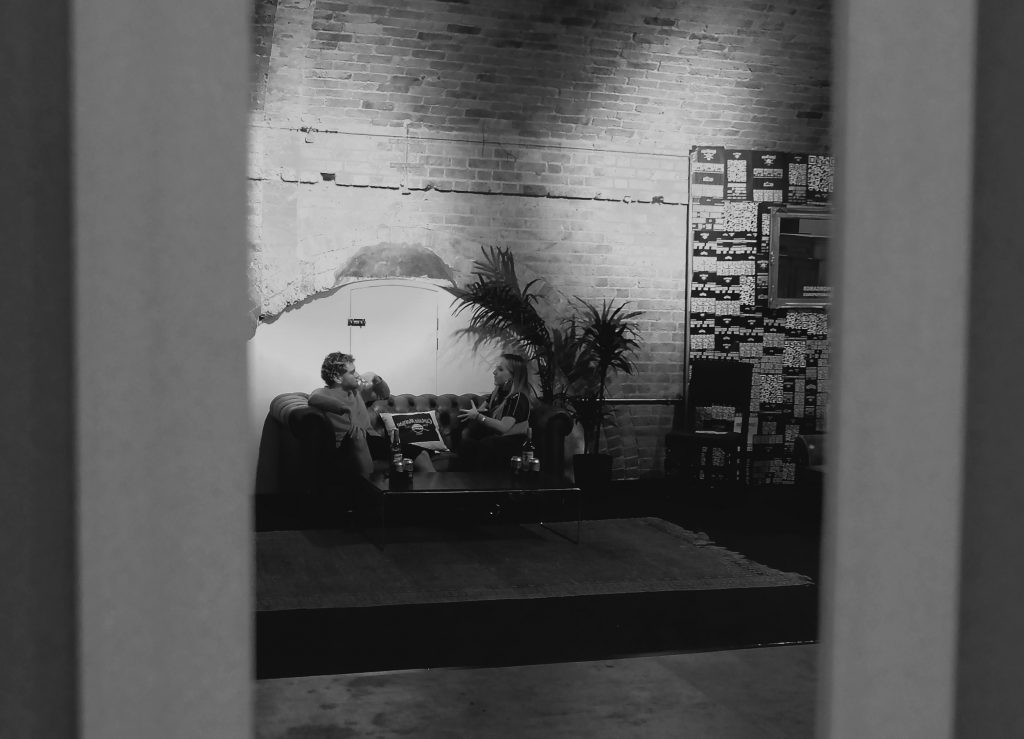
The turning point for Ella came at Boomtown in 2023, where she saw Girls Don’t Sync play a track by FourEyes, an artist she admired from Hertfordshire. “Hearing that track live was a revelation. I realised I could create something, send it out and have it played. That was the moment I knew I could make this happen.” Fuelled by this epiphany, she started producing edits and sharing them on TikTok, catapulting her presence and connecting her with prominent figures she’d prior admired from afar. Social media played a key role, allowing her to bypass traditional gatekeeping in the music industry and form direct relationships with listeners and other producers. “For some, social media may have a negative rep, but it helped me connect with people and put myself out there in ways I wouldn’t have otherwise.”
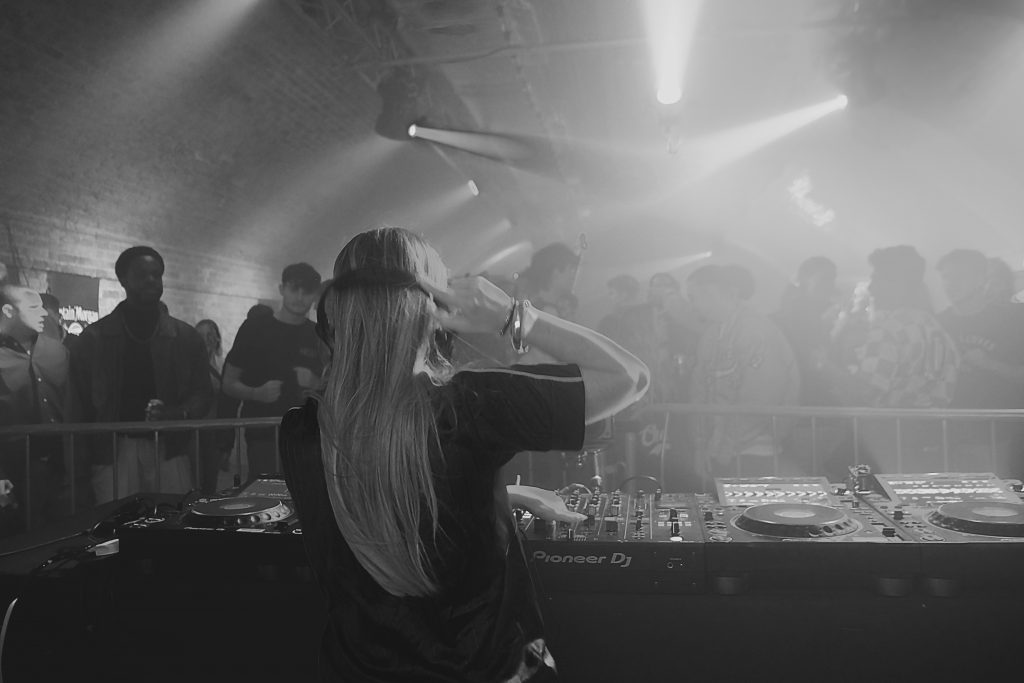
ESC’s story is also deeply interwoven with the challenges and double standards that still pervade the industry, especially for women. The pressure on female DJs and producers to work twice as hard to gain half the credibility is something she addresses candidly. “People have told me it’s imposter syndrome,” she reflects, “but when you’re the only woman in a room full of men, it’s hard to shake the feeling that maybe you are an outsider.” This perspective is reinforced by her disappointment with ghost production, a common industry practice she finds troubling, particularly when it conceals the contributions of women. “There are many female DJs who rely on ghost production because they don’t have the time or resources to learn production on their own,” she notes. “It’s unfair to them and to aspiring female producers who think they’re alone in the struggle.”
Ella’s aspirations are as ambitious as her creative spirit. Inspired by live performances from artists like Overmono and Barry Can’t Swim, she envisions a future where her sets are fully live. A dynamic blend of performance and production that she feels would honour her dual identity as both a DJ and a musician. Beyond her personal goals, she hopes the industry evolves to better support diverse talents and grant Garage music, her genre of choice, the recognition it deserves. “I’d love to see Garage become a bit more inclusive, a bit more camp’” she laughs, “with space for everyone to bring their own flavour.”
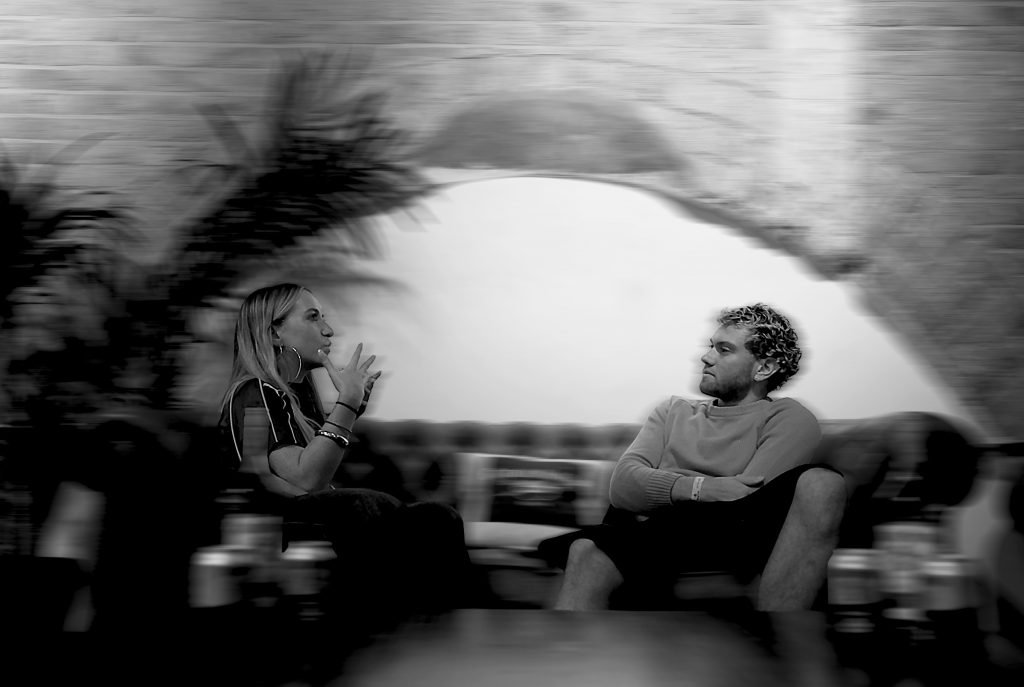
Her vision for the scene, however, goes beyond inclusivity alone. “…the amazing work that Nia Archives has done in Jungle,” she shares passionately, “there are some really incredible groups, especially in London, like Sexy Lady Massive, Jungyals and Gays, but also outside of London too like Not Bad For A Girl in Manchester, as well as Bad Bitch Dubz and Harmonia in Bristol. I am definitely looking forward to watching them grow even more.” As ESC continues to carve her path, she not only showcases her craft but also paves the way for a more inclusive and supportive electronic music scene, where all can feel represented and celebrated.
